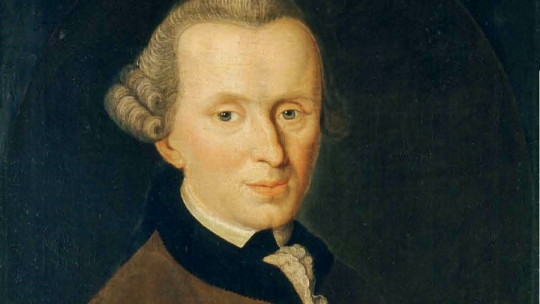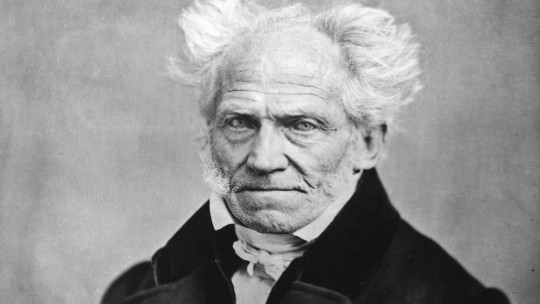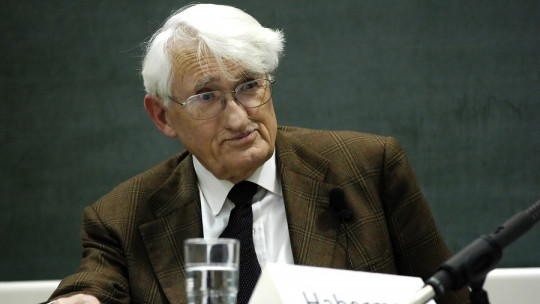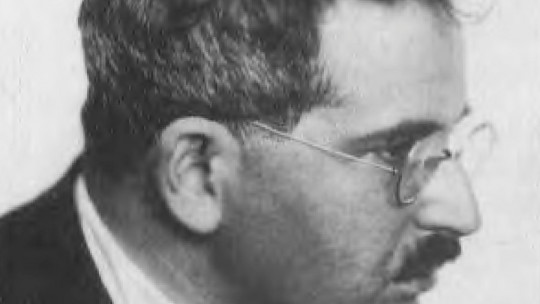
Immanuel Kant was a German philosopher whose name has not gone unnoticed, given that his thought has been of great relevance to Western philosophy.
He is considered the great enlightened thinker of Germany and, in fact, it has been stated that all philosophy prior to Kant’s is ancient, that it was he who caused an authentic philosophical revolution to be generated in his time.
Let’s see who this thinker was and what he wrote about through this biography of Immanuel Kant in summary format.
Summary Biography of Immanuel Kant
Immanuel Kant was born on April 22, 1724 in Königsberg, Germany (now Kaliningrad, Russia), into a modest family of Scottish origin. His education was strongly based on Lutheran pietism, professed by his mother. It is because of that The young Immanuel studied at the Collegium Fridericianum a pietist institution where he would leave with good knowledge of classical language and culture.
Later, in 1740 he enrolled in university, where he would receive lessons in Newtonian physics and mathematics, which was what inspired him to create his first work nine years later: Gedanken von der wahren Schätzung der lebendigen Kräfte (“Thoughts on the true estimation of living forces”).
After the death of his father Immanuel Kant was forced to earn a living by teaching at home to children of rich families during the period between 1746 and 1754. Thanks to having acquired the qualification of free teacher, he began to teach various subjects, among which you can find exact sciences such as mathematics and physics, as well as aspects more related to philosophy as its history, logic and morality.
Teaching and early writings
In 1755 he obtained his doctorate with his thesis Meditationum quarundam de igne succinta delineatio (“Brief outline of some meditations on fire”), and then free teaching with the dissertation Principlerum primorum cognitionis metaphysicae nova elucidation (“New elucidation of the first principles of metaphysical knowledge”)
It would also be around this time that he would publish, anonymously, his “Universal History of Nature and Theory of Heaven.” In this play presented his theses on the formation of the solar system, which would have formed from an original nebula Although it did not have much impact at the beginning, later, the physicist Laplace in 1796 would propose something similar, which was later named the Kant-Laplace hypothesis.
The year 1769 is a key year in Kantian thought because, although he had already written his first texts, it is from this year that he begins to produce several works in which he is critical of the paths that the philosophy of his time had been taking, daring to give his opinion on some of them. the greatest thinkers of the moment. It is for this reason that this year is considered the line of separation between two moments in his career as a writer and thinker.
Before this year we talked about the pre-critical period, in which he made some works that talked about metaphysics, but not being too critical. Then comes the critical stage, in which he is already the author of the great works for which he is known, such as “Critique of Pure Reason” or “What is Enlightenment?”
A year later, in 1770, The university of his hometown, Königsberg, welcomed him as a professor in the chair of logic and metaphysics, giving him some economic and academic security by gaining a more or less permanent place. In addition to being a great teacher and being highly appreciated by his students, Kant dedicated himself with great care to the development of new writings.
Last years
Although prolific, Kant’s life is not exactly that of someone who has traveled widely. He practically spent most of his life in Königsberg and, in fact, it was in that Prussian city that he died due to complications from arteriosclerosis on the night of February 12, 1804, having gained fame as the greatest representative of the German Enlightenment.
As an anecdote from his life, or rather, from the end of his life, being already decrepit, almost blind and without a very good memory, which, already seeing the light at the end of the tunnel, he pronounced, perhaps half delirious, perhaps already accepting the time starting, the words “es ist gut”, “it’s okay” in German. Then, he would say “Genug” (“enough is enough”) and his last breath would expire.
Although his death was in 1804, several decades later, between 1879 and 1881, a collection was made to build a chapel for him, as a monument. At the moment, Kant’s tomb is located outside the Cathedral of present-day Kaliningrad, on the Pregolya River. It is one of the few German monuments preserved by the Soviets after they conquered the city and annexed it in 1945. The previous tomb had been destroyed that same year due to Russian bombing.
Main works
It is not possible to talk about Kant’s life without mentioning the titles of his works, which, without a doubt, have had a great impact on Western thought. These works can be included within the two previously mentioned periods.
In the pre-critical phase we have: The only possible basis for a demonstration of the existence of God (1762) Dreams of a visionary explained by the dreams of metaphysics (1766) Observations on the feeling of the beautiful and the sublime (1764)
In its critical phase we have:
Philosophical thought
Of the several works mentioned above, His pure “Critique of Reason” is considered one, if not the most important, of Kantian works and has great impact on European thought In addition, we have “Critique of Practical Reason” and, in addition, it is worth talking about his conception of law and the state.
1. Critique of pure reason
In the “Critique of Pure Reason” Immanuel Kant wonders if there is a possibility that metaphysics, a current seen as purely philosophical, could become a scientific discipline. In his view, The conception and treatment that metaphysics had received turned it into something that, until now, lacked a solid foundation
In order to advance in this aspect and achieve, one day, that such metaphysics becomes something scientific, it is necessary to proceed to a critique of reason, through which the conditions of possibility and the limits of validity of the theory are determined. intellectual capacity of the human being in the different fields of mental activity.
This work was published for the first time in 1781, although its second edition, in 1787, included many modifications. It is considered a fundamental milestone in the history of Western philosophy, given that its approach constitutes a synthesis between two philosophical aspects of great importance at the time: empiricism and rationalism.
These two tendencies were confronted by the fact of how the way in which human beings acquire knowledge was conceived While empiricism started from the idea that knowledge could be obtained through sensations, that is, through external impressions, rationalism considered that general rules could be found through reason.
Since the publication of the “Critique of Pure Reason” the idea is raised that it makes no sense to ask about the problem of human knowledge, without first questioning what the limit of that knowledge is, limit which is determined by the very nature of the human being Beyond such a limit, it is impossible to know more.
2. Critique of practical reason
The “Critique of Practical Reason”, whose importance is comparable to that of the previous work and was published in 1788, It is the most important work in Kantian thought when addressing morality
It attempts to determine the nature of the moral law. Obligation becomes a law that reason imposes on the will. Respect for this law is established as the only motive for the action.
3. Law and the State
Law is the aspect of human society that has the purpose of establishing the conditions that make it possible for all human beings that make up a society to have particular freedom but to respect that of others. In the work, addresses individual freedom in such a way that it has helped to establish what would later be called legal positivism
Kant speaks of the state as something that is constituted by the agreement of wills that are expressed in laws. The laws, which should be set by the majority, are a legal convention: whoever respects them is within the law, whoever does not is outside the law. Any conduct that is dissident or contrary to these laws is interpreted as conduct outside the law.








